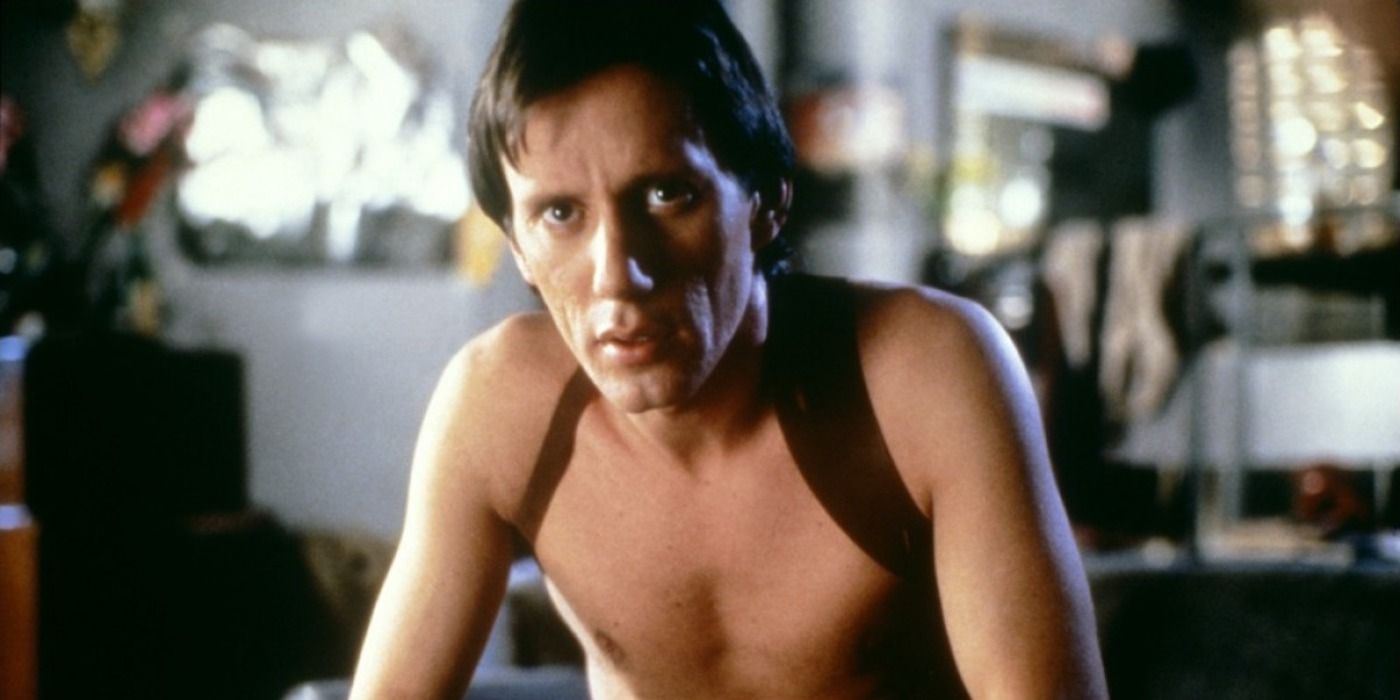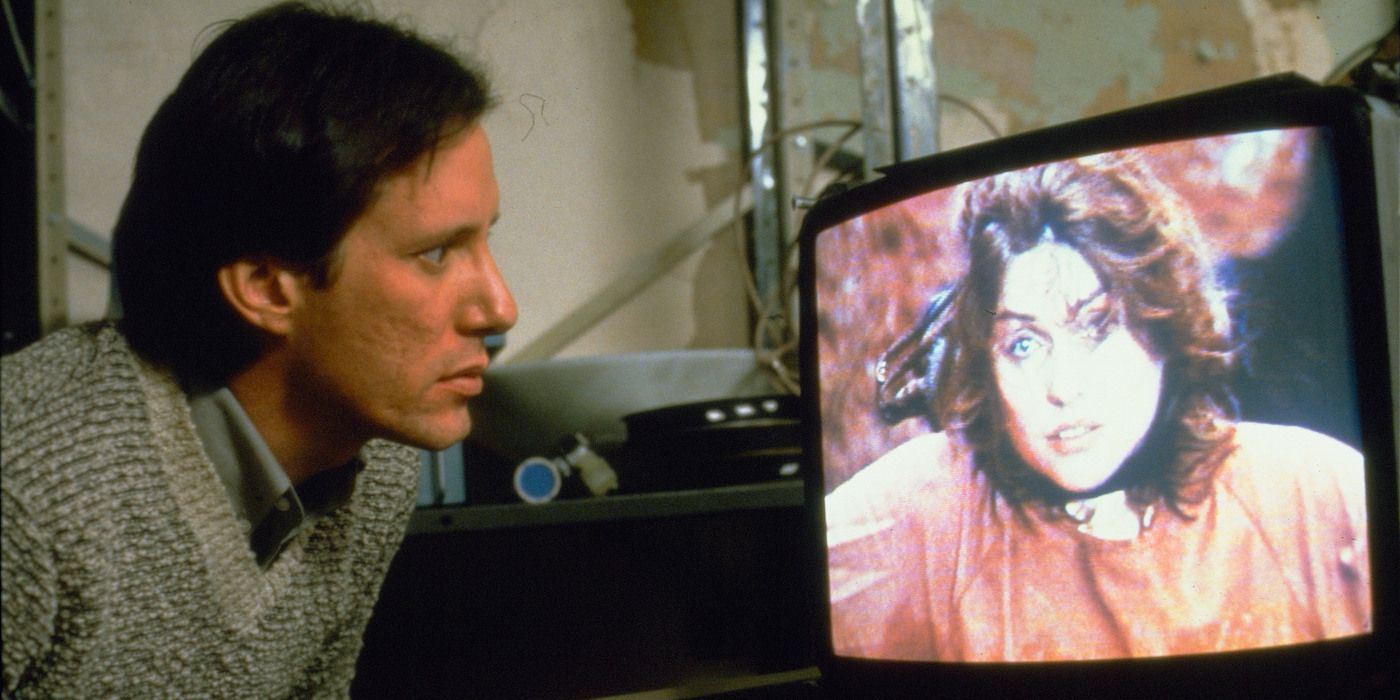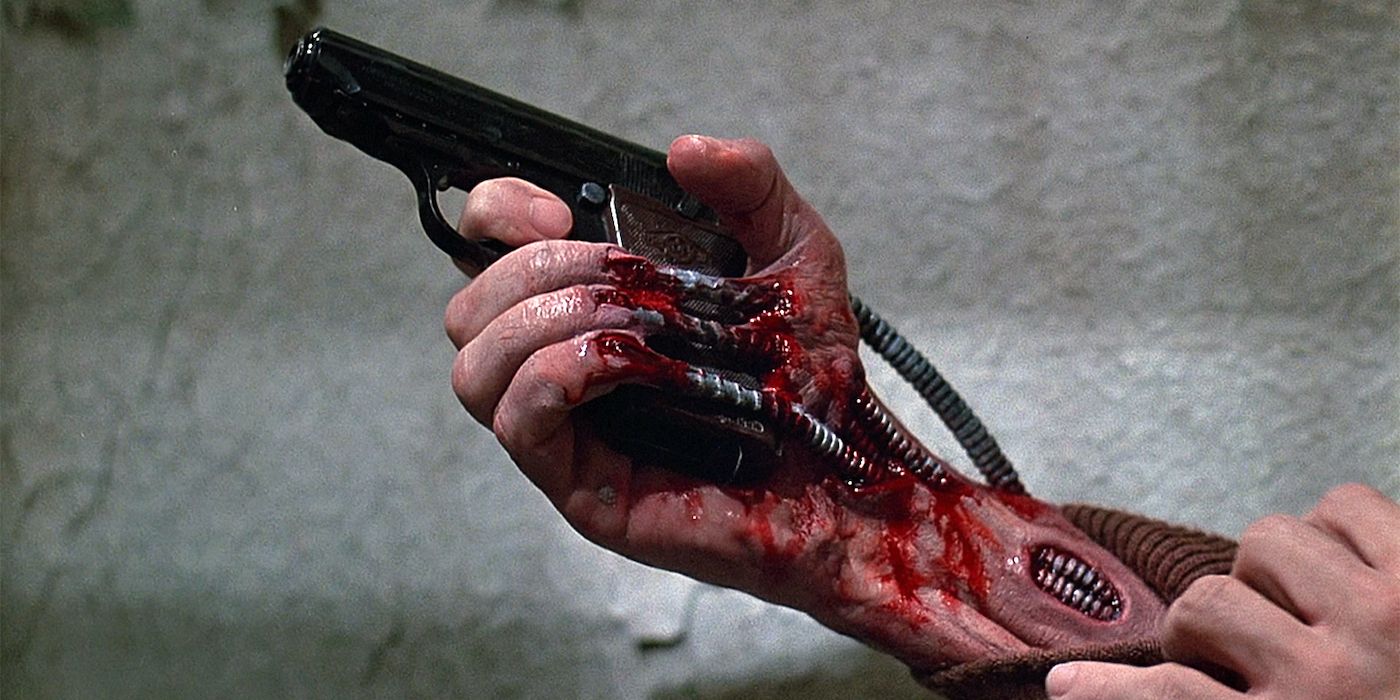Dealing with the future is no easy task. It takes a keen sense of observation to project the cultural tendencies of an era and understand where the world is going, which is why the vast majority of sci-fi movies age faster than other genres. That said, David Cronenberg is a special kind of visionary whose filmography is still relevant in understanding the world we live in today, decades after the movie's release. And none of Cronenberg’s movies might be as pertinent as Videodrome, a deeply disturbing cautionary tale of technology determining the paths of human behavior. That’s because even if analog video technology went out of fashion, the internet's expansion and the advent of social media keep Cronenberg’s reflections contemporary four decades after the release of Videodrome.
Videodrome explores how the need to keep an audience glued to a screen leads companies to produce audiovisual media that’s bloated with sex and violence. Concerned about this trend, Cronenberg uses Videodrome to wonder what are the effects of being exposed to this kind of stimuli nonstop, with the most barbaric acts a human can commit projected in your living room, the heart of the 1980s household. This discussion usually leads to cynical stances. One side of the discussion absolves the media from all responsibility, ignoring that our lives are also shaped by the ideas that pop onto our screens. On the other hand, others put the blame for mass murders in a new animated TV show, turning criminals into victims, exempt from any blame. Fortunately, that’s not the case with Videodrome, which takes the conversation to an abstract level where we are forced to think about the connection between perception and reality.
What Videodrome wants to know is how much of what we see as reality is merely our human perception creating signs where there’s only emptiness. And if the understanding of the world passes through the neurological processing of external visual and auditory inputs, what stops people from altering these impulses in order to also alter a person’s perception and, therefore, their reality? Videodrome gives the audience a literal answer by changing the body of protagonist Max Renn (James Woods) in gruesome ways while his reality squirms and revolves all around him. However, as the movie underlines, Max is also to blame for his bloody condition, as the violent images that shifted his perception are reflexes of the darkest thoughts he kept locked inside his mind.
Forty years later and we are still, rightfully, discussing the effects that media might have on people’s perception of the world. The entirety of cancel culture, for instance, derives from a collective effort to suppress discourses that are deemed harmful to the social body, as they can push other people to reproduce destructive behaviors. That’s not so different from Max’s mind becoming so warped with television signals that he creates a symbiotic relationship with a firearm, becoming himself a tool of destruction. Horror has the power to turn nightmares into reality, and Videodrome’s unsettling imagery manifests fears that are still part of our life. And since the cultural industry only increased its tentacular reach since the release of Videodrome, chances are Cornenberg’s concerns will remain modern for many decades to come.
But it’s not only for its philosophical consideration that Videodrome should be praised. Cronenberg is known as "the King of Body Horror" for a reason, as the filmmaker helped redefine the limits of practical effects to bring his disgusting creations to life. While technology has changed a lot since 1983, Videodrome still holds up as a fun horror watch due to its gruesome practical effects, which stand the test of time to haunt new generations. While Videodrome is all about the horror of the mind, Cronenberg finds creative ways to distort bodies and make the audience uncomfortable.
It’s also curious to see how Videodrome echoes ideas that are present in Cronenberg’s entire prolific career. Videodrome is an exploration of media, its effects, and how television can never be as dirty as the things we hide inside our minds. Still, it’s also a tale of technology changing so much and so fast that the human body needs to evolve to survive in a new reality, one that’s shaped by scientific discoveries we are not sure how to handle. And if we take Cronenberg’s latest release, Crimes of the Future, we can see the relationship between the body and uncontrollable environment is still central to the filmmaker.
In Cronenberg’s filmography, humans create technology to change their environment. However, as the environment changes, humans need to evolve and inhabit different bodies, or else be destroyed by a reality we created ourselves. It’s no different with Videodrome, which chronicles the life of a man whose brain cannot properly process the new wavelengths of a futuristic television. And as such, he becomes an instrument to be used by other people who better understand how the new world functions. Technology is not evil by nature, but it unquestionably provokes change. And with his literal approach to horror, Videodrome deconstructs the human body in response to changes in perception and the subconscious caused by a culture that worships mass media.
Watching a classic usually allows movie lovers to be transported in time, taken to a different era with different rules and concerns. What makes a first watch of Videodrome so enticing today is that this body-horror classic doesn’t take us away from our time. While we are no longer obsessed with analog media, our reality is still shaped by the cultural industry. And for better or worse, everyone is a producer in internet times, which only makes our media landscape more chaotic and uncontrollable. And even though we should be used to the panoptic presence of media by now, we still fight about the supposed dangerous effects of violence in movies and television. As such, Videodrome remains as relevant today as it was in 1983. Maybe more.
Rating: A-



